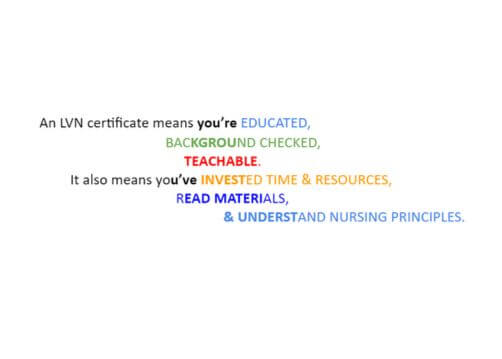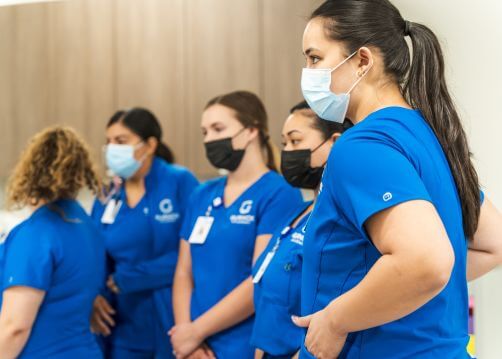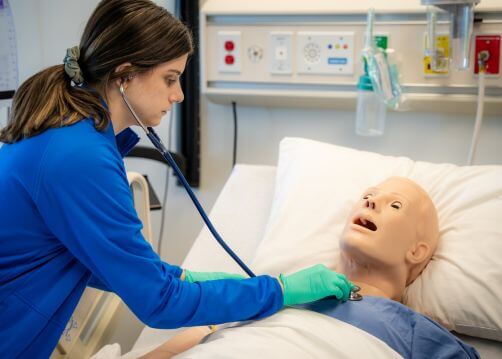15 Little-Known-Facts All Nurses Need to Know
Date: August 27, 2021
Here are 15 little-known facts that every nurse ought to know.
1. Have A Mentor
Have a good mentor, someone you aspire to become.
- Be a good mentee by asking questions, taking notes, practicing what you’ve learned, respecting time and space, and always saying `thank you.’
- Establish goals and expectations by writing your objectives down and sharing them with your mentor.
- Find the best method of communication for both you and your mentor—not everyone is a texter!
- Learn from your nursing mentor, but don’t be afraid to speak up if something doesn’t seem right. You might be right!
- Connect outside of the hospital or care facility by grabbing a coffee, going for a walk, or meeting somewhere new.
2. Be Positive and Remain Calm
No one likes a complainer, so don’t be one! You can vent but take it easy and try to end with a positive note. Asking for advice and simply stating your problems are two completely different mindsets—learn the difference!
3. Observe the Experts
In the ever-changing field of nursing, there is an endless amount of knowledge. Graduate from nursing school, knowing you’ll always be a student. Observe the experienced nurses and doctors around you. Implement their advice, reminders, and mannerisms whenever you can.
4. Expect Reality Yet Hold Integrity
You can never know what to expect in your line of work. Be ready for the worst, yet expect the best. Be prepared for anything to happen.
5. Ask Questions and Ask for Help
Don’t hesitate to ask questions that may seem silly. However, the line of work you are in has no room for stupid questions. They don’t exist. It’s always better to err on the side of asking rather than not. Further, you learn most by watching what others are doing.
6. Bond With Your Team
Bonding doesn’t mean you have to try and be best friends with everyone or even have to be close to your nurse pals outside of work. But approach your co-workers like friends. You’ll feel a sense of family within your unit and be able to ask for more help when you need it, as well as generally feel more valuable. If you can, make the extra effort to befriend unit managers, they are often the most knowledgeable and experienced nurses in the unit.
7. Understand When You Need to Re-charge
Don’t be that nurse who never needs a break. Everyone needs a timeout. Give yourself 15 minutes to recharge. While this may seem like a wasted 15, a bit of R&R will result in improved efficiency throughout the day. Besides—the things on your to-do list can wait five minutes while you use the restroom.
8. Establish a Routine
Establishing a routine is a practice that takes time. But, without it, you’ll be frantic. However, the benefit of having one puts you in control and allows you to be more efficient. Get to work early, obtain the supplies you need, update yourself by reading materials and following your routine. At the end of your workday, ask yourself if you can do any little thing to establish more of a pattern on your next shift!
9. Be Respectful to Yourself and Others to Earn Respect
Earning colleagues’ respect ensues from conducting oneself honestly, respectfully, and professionally. Learn the names of your colleagues. Sincerely value them where you authentically can. Be polite and honest and ask questions.
10. Know Nursing Etiquette
Your profession requires professional etiquette at all times. Foundational elements include politeness, having a firm, quality handshake, and looking directly into others’ eyes. Make sure to avoid gossip and keep conversations on track. Provide friendly salutations and a signature block within your emails. Allow others to finish their sentences. Place a nametag on the right side of your chest to avoid awkward moments where patients or staff may forget your name. Say, “good morning,” “thank you,” and “good night.”
11. Be Prepared When Asking for the Doctor
Make this interaction as smooth and quick as possible. Before you call in a doctor, make a list of things you need to mention. Have your pen, paper, and patient charts handy, and be ready to take notes. Write down the instructions given so that you can refer to them when you forget.
12. Take Notes and Be Organized
You will be overwhelmed with the demands and requests from your patients and co-workers, and it’s unavoidable that you will forget things. To avoid this, consider keeping a personal notebook with you to write items down. Eventually, you’ll be able to ditch the notetaking but begin training your brain to be as organized as those experienced nurses around you.
13. Be Efficient
As a nurse, you’ll need to learn to be efficient and prepared at all times. Start by keeping reminders to yourself. Also, keep things you routinely need near you or in your pocket (saline flushes, clamps, scissors, tape, alcohol swabs, etc.). Also, learn to group tasks into categories.
14. Learn to Prioritize
Efficiency is another practice you will learn with experience. Look at your list of to-dos. Refrain from attempting to check everything off the list individually. Instead, look at the larger picture! As you receive tasks, begin to formulate plans. As soon as you can, jot lists down in the form of concept maps, checklists, or timelines.
15. Invest in Continuing Education Whenever You Can
As a nurse, you will always be a student by learning more. Investing in continuing education will allow you to move up the ladder sooner than later. Find a unit you would like to work in and engross yourself in education. You can take local or online courses specific to the team you desire. Also, stay up to date on certifications and look for ways to learn outside your hospital or care facility.
This list of 15 was used with permission from the author, Mackenzie Thompson. It has been altered and adapted here per Gurnick Medical Academy’s in-house writing styles. A link to this site is here.
________









